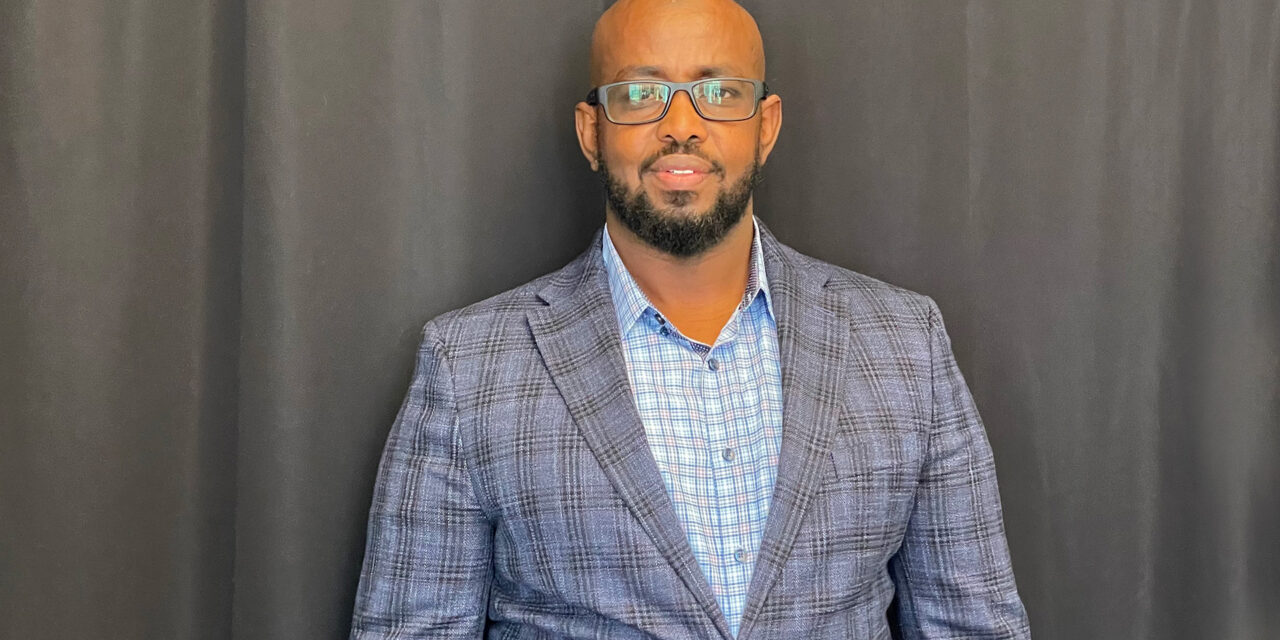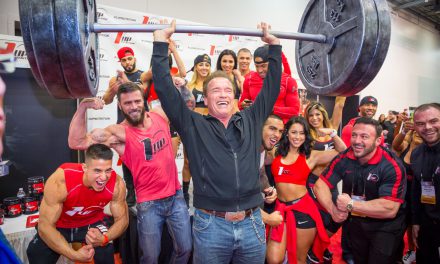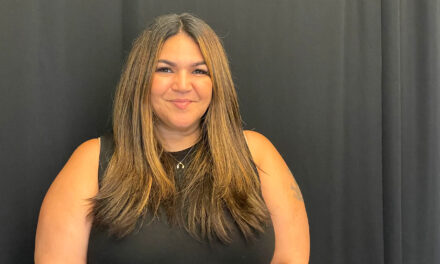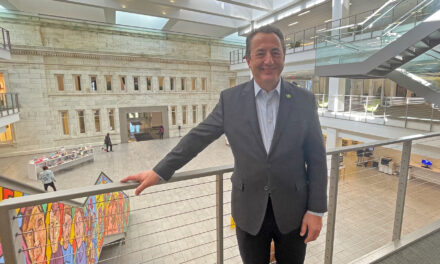Podcast: Play in new window | Download
Subscribe: RSS
Tim Fulton 00:07
Ladies and gentlemen, welcome to the confluence cast presented by Columbus underground. We are a weekly Columbus centric podcast focusing on the civics, lifestyle, entertainment, and people of our city. I’m your host Tim Fulton this week. In anticipation of this fall’s election, the confluence cast is endeavoring to introduce Columbus voters to the 12 Council and two mayoral candidates in their own words. Today, Farhan Jett, the candidate for Columbus City Council, district five discusses his background, how he believes Council can help better the city’s distressed neighborhoods in the value of having a representative in each district. You can get more information on what we discussed today in the show notes for this episode at the confluence cass.com. Enjoy the interview. Sitting down here in person with Farhan JT, for Hello, how are you?
Farxaan Jeyte 01:04
Fantastic. Thank you for having me. I’m honored to be here today. This is a very special
Tim Fulton 01:11
Well, good, I’m glad Well, you’re the first of the candidates I’ve interviewed as well, for Han is running in district five and the upcoming Columbus city council election. If you could start just by telling us about yourself and how that relates to your candidacy how it got you here.
Farxaan Jeyte 01:27
What My name is Han JT and obviously you can tell by that kind of name. It’s not your average American name. But also my with my amazing accent. You can see my background is now my English number first language. Okay, we moved. We moved here in Columbus back in 1996. Where I was we were originally from Somalia, Somalia, in East Africa. So we had a civil war. Real bad one. We have to sort of go to refugee camp, new life was about what eight years old at the time, we moved to Kenya and the American government came by they help us out. For the first Bush. He’s HW. Yeah, yeah, he sent troops to Somalia to assist because the photos is severe famine, and civil wars. Well, it was terrible. And out of all the nations in this world, George Bush, professional and my favorite Bush is the one that felt like out of the mercy of the United issues that came out to help us out the destabilized civil war. But there was a little bit of a peace because of that. But unfortunately, then I’m sure you heard the horror story about Black Hawk Down. That’s what it took us where it took place. Yes, it took place. And then somehow, by faith, I Muslim and there was a church that came to the refugee camp, they the one who actually sponsor us and brought us to United United States, your family, our family. When we migrated. The first location we stayed was Springfield, Virginia. We stayed about two years, Life was tough, because it was so expensive outside of DC. Then one of my uncles and four Fortunately, he actually had a friend who he helped out to move to Indianapolis, and he had another friend close to Columbus, and he stayed over for a couple of weeks. At that time, my parents, they used to work at fast food and cleaning. Okay. And an average I think pay cost per hour used to be $4.15. And the house we lived at the time we were paying close to 2100 Oh, wow. This 1994
Tim Fulton 03:40
big family or huge, okay.
Farxaan Jeyte 03:43
Were seven plus mom and dad plus other relatives. So it was four plus basement. So you could imagine, you know, typical my immigrant family. Yeah. And we always have, we always live together. So it’s, it was a normal life. Just having a lot of how people individuals are not at home. It’s part of lifestyle. It’s just the way we are family oriented. We are. So anyways, my uncle, he actually, if his friend was working at warehouse, he was making almost $7.50 You call my father. I said, we need to move within three weeks. I think at that time, it was around July, mid July. By the beginning of August, we migrated to Columbus, Ohio. Okay, we settled down in northern Linden that will move to right next to where Northern Mali used to be.
04:31
Yeah, I don’t know if you recall that. Very much. So yeah. So
Farxaan Jeyte 04:35
and then I ended up going to Linda McKinley High School. Okay. Very scary situation. Firstly, I was in that. This stuck with me. I remember my homeroom was history class. And I think it was Mr. Moore’s Law teacher. And everyone the class was knocked out slip. Okay. This is a little bit of culture shock because I’m coming from an area where it’s little bit more kind of a waste is Fairfax one of the richest counties in the nation. Okay, so you can imagine the school system they have
Tim Fulton 05:06
been quote unquote better. Right
Farxaan Jeyte 05:09
cream of the crop. Yeah. Then Unfortunately, Congress words, other time is way different. Other side of the spectrum. Yeah. And everyone in the class was asleep first period. And one kid had a god he fell off. That’s how we came to find out. Okay, my first view of the class, you can imagine I was panicking. The last time I saw a gun, we were at the refugee camp. And here I am panicking. But that’s the experience that I yeah, that stuck with me that area but Linda McKinley was, was a blessing and a curse struggle. I gained a lot of good friends, good experiences, a lot of life lessons. I ended up graduating from Linda McKinley ended up going to not far from Linda Mikayla to Heidi American to a Catholic institution. And now here I am a Muslim guy. By the way, one of the best decisions I ever made going into that situation. Okay. I loved that school. I loved the people I loved the administrators made her lifetime friends. Here I am. I come to this home. Columbus is where I we have about 153 individuals family members in Columbus, directly related directly related to my uncle’s Auntie’s their kids,
Tim Fulton 06:26
and I’d be remiss if I didn’t point out Columbus is, I believe, the second largest Somali population in the country. So this is not a an uncommon story. Right. Right.
Farxaan Jeyte 06:36
Right, Columbus. What if you by state, I think we have the most of Somalis. But But oh, what’s a Pollyanna way I use? Minneapolis, right? Have that, right. So I have this where I established business. And I have three kids. 16 year old, 14 year old and 11 year old got it. So on a typical somebody’s family, it’s six, but they call me I’m a little bit Americanized, so so only three, that’s only theory. Got it. Got it. So I underachieved from that department. Okay. But overall, though, Columbus is home, Columbus is where the future is Columbus, there’s so much that Columbus has given me, especially this community that we live in. And I owe them so much, because the difference that I have, but at the same time, this is the neighborhood that I grew up into, and it’s deteriorating in so many different ways. And it’s time to give it back. Why I believe a loyalty and I believe sincerity, and if I don’t we don’t improve within our neighbors. Who are we he says a lot about who we are. And I’m running for Columbus City Council at the moment. And one of the reasons why I’m running this because there’s so much stuff that that we can improve on that and I felt like it’s time for me to give it back. I was always one of those individuals that encourage others to run for office. And I did that so many times that finally asked that question myself, took I took the responsibility to do that. It’s not easy. It’s challenging. Obviously, you have to put your my business, pause my personal life, pause and dedicate myself to the service. And even if we don’t succeed, I think is still a success. Because we need to get this message across by bringing more awareness to the issues that we have. And even if you know, my opponent, whoever is we have to also figure out a way where we can improve the situation regardless of the outcome of the results. So
Tim Fulton 08:40
translating back when I’m hearing you brought, you’re coming to run for Columbus City Council, because you believe that you have an obligation to serve not only the city as a whole, but also your community specifically,
Farxaan Jeyte 08:53
absolutely. My community and and Mike is also the group community that I grew up into ilinden area I’ve worked as a is a duty that I have to give it back. It’s because of that we need a representation at the end of the day, we definitely do need to have a voice that we need a voice forever to and there has to be accountability. There has to be collaboration. There has to be transparency. At the end. We are the city taxpayers, we have to have a say. So unfortunately, for the past 16 years, the current city, city council and administration had been recycling the same policies and look at the expecting completely different results. But as a constituents who feel otherwise,
Tim Fulton 09:44
can you talk through some of those issues you believe that the city is facing that you would want to address as a council member.
Farxaan Jeyte 09:51
Some of the public safety is number one, and I think the way they have what how they conduct themselves and where they lead us It’s not the best way of the community and the column, for instance, say the department of the police department and the community, there’s no a great relationship. There’s a lot of hostility going on. And at the end of the day, the individuals who are patrolling our streets are from our communities. So we need to, there has to be a relationship between the community and the police department. Yes. There’s a bad apples in the police department. Yes. My own nephew has actually been assassinated by Columbus, police department by by Columbus PD. And he was only 14 years old. Okay, at CVS eastmain.
Tim Fulton 10:39
I’m sorry, who is your nephew?
Farxaan Jeyte 10:41
My salad. Okay. Unfortunately, he passed away on January 24 22 2019. Okay. And it was, it’s really hard to remember, it’s hard to process that till the deal. It’s hard to imagine that he was a kid, it was a high school he had drifted by the influence, unfortunately, at that time, and it’s, it’s heartbreaking to even say his name, okay to remember his face. And that was only his, it was really a very hardworking kid. But unfortunately, because of other influences, he ended up into a certain way where he was shoplifting here and there, okay. And, but at the time when he got killed, there was, I think there was an incident within the store, CVS store, and when the cops showed up it they start immediately shooting him. And the investigation is still on. There is no outcome results yet. So far. And he has been, I don’t know, forever. But even though I’m feeling that way, I felt like there has to be a better relationship between the community and the Columbus police departments. And we need to because the officers themselves are human being. Yeah, mental health is real. There’s so much stress that they encounter. We got to figure out a way where they is a better dialogue, a better training, whatever they do right now, it’s not working. Right. We got to figure something out. That’s one second is that I don’t know if you live in the city. But there’s some of these distressed neighborhoods. There’s a food deserts all over high school levels when kids graduate high school, and there’s nothing for that kid to do this career centers. But there is absolutely none. We want to we have a panel proposing a school traits, such as carpentry, welding, home mechanic economics, I think they took that away. And I SDNs. So we poverty is the issue. And unfortunately, the leadership have not really had zero solutions for these issues. But we know that we have the best solutions to resolve this issue. Is this matter of getting going out there and introducing to this to the to the masses? I’m sure everyone will welcome based on what the solution the formula that we have.
Tim Fulton 13:10
Absolutely. What other issues would you want to address?
Farxaan Jeyte 13:14
The transportation is one of the biggest issue though, we definitely do need to address. The current system that we have has not worked for the past 1520 years. There’s a better way. This is a city where a lot regional where it’s going to be the Silicon Valley of Midwest. The current system that we have, it’s not Columbus is the third worst air quality cities in the United States. Okay. And obviously, we have a climate situation that we need to address on that end. And we want you to do the level up. It’s a system. Columbus city has been talking about since 2021. They want to dedicate about $100 million. So far. So far. It’s just nothing but talk, there is no solution. We have a solution to introduce streetcar training. It’s it can reduce the pollution, it can create more jobs, and it can actually take more people at once. So those are I think the areas that we felt like we need to address more obviously, the biggest one we have is affordability.
Tim Fulton 14:17
And I hear some Yeah, absolutely. Well, and I hear you keep saying we and I think that that it’s not to put words in your mouth. It’s reflective of both the community that you represent and the city as a whole.
Farxaan Jeyte 14:31
Yes. Yes to community what I mean by committees, because they chose St. Columbus city overall. Yeah, so we are the people’s candidates. So that’s what we say we
Tim Fulton 14:41
okay, yes, almost the royal will. Talk to me about if you have thoughts on the new district structure that Columbus City Council is going to be under.
Farxaan Jeyte 14:54
This is the first time that we I went a long time. I don’t know how long but we see old city council including the mayor is running for office? All right, all of them. And this two districts that have recently added on.
Tim Fulton 15:06
And while there were no districts, were there two new seats,
Farxaan Jeyte 15:10
two new seats and a total of nine different districts. The significance of the district, the way that I understood is that the only way that it can benefit me is that if I’m getting two petitions only from that district, okay, but the vote is coming from citywide. It’s, it’s something that needs to be revisited, we need to go back to the city charter. And maybe when it comes to voting is specifically supposed to come from the district. Okay, that it makes more sense that way. But the way the current system is not, is it’s confusing. It makes no sense. But at the same time, it’s benefiting. We know what’s going to benefit the current administration or city council, but it’s okay. But we as a constituency, have a say. So it’s one of the things about the downfall of this administration has City Council have they really do not prioritize the needs and opinion of the constituencies? Okay, it’s some was the they make that decision? There’s no transparency, there’s no closer collaboration, there’s no has none. And then the more they make that decision, they make public and then they don’t take they don’t consider the suggestions of their constituencies. And that’s something we would definitely want to make a change. This is a with this is one of the most undemocratic acts cities in the United States. It’s only Portland, Oregon, and Columbus that have this current system that we call up the rest of the cities more majority of war system. And one of the main excuses they always make is that work break work system re corruptions? Well, the Columbus is different. So let the constituencies make their own choices to make the choice for them.
Tim Fulton 16:45
I don’t want to push back against you. But do you see value in basically the step towards that representation in that there is a candidate in each of those districts? Excuse me, there’s a representative, excuse me, there will be a representative in each of those districts do you see value in that you have to live in district five in order to be the district five council person.
Farxaan Jeyte 17:12
I see the value of that. But it’s not going to bring different solution. Now, at the end of the day, it comes down to the policy that has been set to make the city move forward. But the benefit that I would benefit is specifically for that word or for that district if that the voting is strictly coming from that district, because then they will be more informed about the individual. But right now not right now. Everything’s blanket.
Tim Fulton 17:40
Well, and there’s an argument that you would be held more accountable to the folks that live in your district.
Farxaan Jeyte 17:46
Exactly. But is that something they want to see change? Only when we got elected, hopefully, we’ll have the opportunity to make those changes.
Tim Fulton 17:54
One, this is a new thought for me. But I’m super interested to see what the voting results look like for let’s for you, for example, who’s one of the few candidates who has somebody you’re running against? Will the person who won in district five end up being the person who got the most votes in district five? That’ll be super interesting to look at after, after all said and done.
Farxaan Jeyte 18:23
Who, right? Yeah, there’ll be very interesting. But at the end of the day, it’s not about whether we win the district or not. It has to be whoever gets most of the votes citywide.
Tim Fulton 18:31
Exactly. Yeah. That is how it’s going to be tallied. So finally, I wanted to ask you what, you know, what is your pitch? What’s your unique value proposition? Why should folks vote for you?
Farxaan Jeyte 18:45
First of all, I’m not a politician. I, what I one of the things I want to go back some of the issues, specifically the trade schools, I think, okay, the one that’s going to change, I think one of the biggest issue that we have in the city is poverty. And poverty has very strong grip in different areas in different spectrum in our lives. And one of the ways we can improve that is that we implement trade schools in a young age, in even middle school, sort of a skill. And when that individual finished high school, they have certificate either being a plumber, electrician, stma, or Carpenter, and they can have their own independent specific LLC. And they can make 80,000 a year. And that’s going to uplift the whole community. And they will have alternative, not every kid by the way, is going to go to a college, school was going to have that alternative route. So that would create it actually more entrepreneurship within the communities. And those individuals will have the skills for the rest of their lives. I think we used to have this programmers who back in the days but unfortunately recently we didn’t implement for the past 1520 years career centers, and that has not produced They’re very productive society, in my opinion. Okay, another topic that I really want to go back into is the food deserts, and the food deserts and the transportation sort of align. What I mean by that is the food deserts, in some of their neighborhoods, what we have collaborated with the Iowa State, some of their professors in the agriculture department, we have collaborated out a long conversation and for urban food, farmers, and farmers and food distributors. And now our goal is to bring in a way where they can bring those products to the inner cities in distressed neighborhoods into the convenience stores and have a conversation with those specific convenience stores, who are selling a gallon of milk $7 to those neighborhoods, and to create a section to fresh produce. One of the reasons is, neighborhoods are becoming food deserts. Because the kitchen of those houses became desert, because of the fast food, we got to change that there’s going to be as heavy population, well, we have diabetes, and obesity is because of the food, the quality of life and the food that we’re eating. And we can actually help that in the long run by producing these kind of options to those neighborhoods. And unfortunately, some of our elders in some of these neighborhoods, they don’t have the transportation to go to Kroger’s, by a week effort food. And we have to improve transportation or if you write a code of bus, but it’s not 15 minutes. Wait, it’s not 30 minutes wait. So we got to figure out a way where when we implement this car, streetcars, or three streetcars will work only throughout maybe three, four miles within downtown. So Coda can have more fluid system where they can have faster, maybe less waiting time, where those elders when they go to Kroger’s, and they have week a week worth of grocery shopping, they can carry around, right, they don’t have to wait forever. I know they don’t have the strength. But sometimes we got to figure out a way where maybe we can have a conversation with Kota, they can provide additional transportation. We have to look out for our elders for our youth and those individuals who are at some of these distressed neighborhoods at the end of the day. We are one family, we live in the city together with factors directly there. So there has to be a little bit of a sincerity we have to care for one another. Some people that look at the bottom line, yes, look at the bottom line improve more richer by helping out your own your own community.
Tim Fulton 22:34
So I end every interview by asking two quick questions. One is what do you think Columbus is doing? Well, and to what do you think Columbus is doing? Not so well?
Farxaan Jeyte 22:48
Well, the region is doing well. I don’t know if commerce is doing well. Okay. What I mean by that is, fortunately, we recently had Intel coming into the region, we have Honda coming into the to, to the region. And one of the things that Columbus is not doing well, is that Congress public schools are not they’re not taking advantage of those programs by producing scholarships, from his those institutions to into the school system. Because those schools, those individuals, when they 1510 years from now, when they finish high school, they need to be on the workforce with they have to be equipped with the right skills, and some of the leadership are not taking advantage of these opportunities for the youngsters to set up for the long run.
Tim Fulton 23:31
Okay, for hon thank you for your time.
Farxaan Jeyte 23:33
Anytime. Thank you so much. It’s been a great day
Tim Fulton 23:46
thank you for listening to the confluence cast presented by Columbus underground. Again, you can get more information on what we discussed today in the show notes for this episode at the confluence cast.com Please rate subscribe, share this episode of The confluence cast with your friends, family contacts, enemies, your favorite businessman. If you’re interested in sponsoring Confluence cast get in touch with us. We can be reached by email at info at the confluence cast.com Our theme music was composed by Benji Robinson, our producers Phillip Cogley, I’m your host, Tim Fulton. Have a great week.





